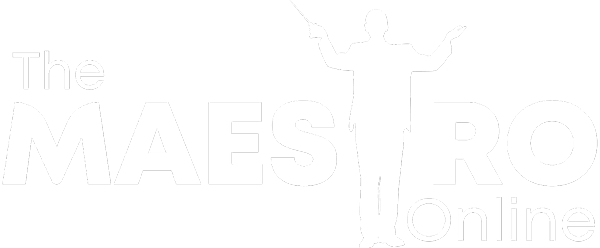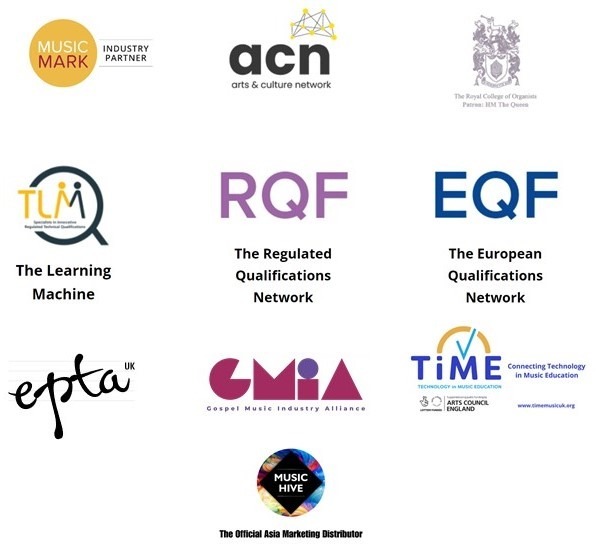Traditional Music Teaching, Holistic Music Lessons?
Traditional music teaching has several inherent errors in its structure and yet so many teachers teach exactly how they were taught. What do I mean by this?
It is often very ‘corrective’ with students (you) playing or singing parts of pieces and the teacher correcting you which subtly implies that a student is constantly getting things wrong.
If you are constantly being corrected you can develop a low self-esteem and become very anxious when performing in front of others. Your fear of getting things wrong and the criticism you may receive from others continually evolves.
You want to learn to play an instrument or sing because you like its sound or you were inspired by somebody that you watched. You start lessons only to find that note-reading is what is more important and not how great a sound you can make.
You decide to take an examination and a couple of weeks beforehand your teacher shows you some aural tests and sight-reading. You get the idea of how the tests go, but you don’t improve. The teacher runs through several more tests because you made some mistakes and you make some more mistakes.
You are a more advanced student and at a later stage in your development you’ve suddenly had to take a theory exam, or transpose or score read. There have not been any steps made towards these challenges and they suddenly appear at quite a high level as if out of nowhere.
Music has become about reading notes, chords and rhythms, but not about ‘making music’ or ‘fun’ any more.
Eventually, you become uninspired and you give up, or you battle on because it’s the right thing to do but you are not finding it as rewarding as you hoped or once did.
So, you can identify with some of these emotions and experiences. Perhaps you have a different perspective and think that being able to take criticism and grow from this is an important part of maturity. Some psychologists say that we need three times more praise than criticism in order to sustain a very positive mental health. So, is there an alternative and what are it’s benefits?
Training the Whole Musician: Holistic Piano Lessons and Organ Lessons
The answer is a method where the whole musician is trained from the outset. You are not taught how to read a piece and then you play it, but your soul is nurtured, your musicianship is enhanced and your musical need for satisfaction is fed. You enjoy what you do, you evolve as a complete person, you feel more complete and yet you simultaneously thirst for more. You leave a lesson having enjoyed it, you feel motivated to continue on your own within the week, you feel supported rather than criticised and you are really happy to book in your next lesson.
So what might a holistic lesson look like? Let’s see a few examples of what you might expect.
If you are a beginner pianist or organist and it’s one of your first times at the keyboard:
You might explore the whole range of the piano. Finding different notes at different octaves and not being locked in at middle C.
You might listen to what some rhythmic values sound like and copy them.
You might then improvise with these rhythms over a fun backing track or in a call and response style musical conversation with your teacher.
You might explore some pitches with your voice or at the piano. The rhythms might evolve into melodic patterns and you are beginning to create your own piece.
Following this, your teacher might present you with a piece of repertoire and you realise that you can achieve much of it quite quickly because your rhythmic and pitch games have included the key elements within the piece and so it is not so ‘new’ as you first thought.
What have you learned in this lesson? You have developed some pitch and rhythmic theory, you have improvised and you have read notes. Through improvisation you could not possibly be wrong and you have internalised the sounds various sounds in preparation for your piece.
Why does this work? Firstly, you have been “set up for success”, not “set up for failure”. The main pedagogical teaching method is progressing from “sound to notation”. You have learned exactly how human beings naturally learn: Babies hear people around them, they copy sounds, they make up their own sounds (improvise) and later they learn to read and eventually write. Reading is not the first step.
What about an holistic singing lesson?
Well the same concepts apply. The teacher sets up exercises that facilitate natural development and, where possible, the pedagogical methods work in such a way that the student cannot get it wrong. For instance, the idea of support from the ‘diaphragm’ area or the intercostal muscles are quite alien concepts to most people when a singing teacher starts discussing “core support”. However, picking a simple song that the student enjoys and “sh-ing” to a phrase immediately engages those muscles. The pupil simply cannot have got it wrong and so they feel successful. Success breeds the desire to do more, a sense of fulfilment and yet thirst for the next stage. Similar steps are made to convert “sh” to vowels and then syllables and whole phrases. The tone of the student’s voice begins to evolve naturally within a matter of weeks.
What about advanced music pupils holistic lessons?
The same concepts apply: set them up for success. Start with what they know, apply teaching methods that ‘cannot fail’, support the pupil, help them feel positive and lead them to desire more. Structure, strategy and emotional support are core at all levels.
Holistic Music Lessons Summary
Finding the right teacher for you on a one-to-one basis is extremely important. I thoroughly recommend that you seek a teacher who teaches the whole musician, who supports you and creates a positive environment that always has you wanting more.
Holistic Music Courses Online
The new bespoke library of music courses online starts by training the ear, moves to performing in many keys, then adding harmonies, then improvising and finally reading and sight-reading. In other words, all courses move from sound to symbol. The courses develop YOU the musician by enhancing your core skills, enabling you to perform better in all areas, on all instruments and with improvisation. Free up your soul!
Check out the library to see if it is for you – it’s holistic, it’s affordable, it uses fun famous melodies, in the comfort of your own home, covid safe and yet there’s a real person behind it for you to reach out to.
Did you know that you can even request your own courses?
Holistic Music: What does it Mean to Train the Whole Musician?
Holistic musicians connect their souls to their performances through every means possible, through every style, finding meaning in all that they do. Connect with your audience today!
Robin Harrison teaches as “the maestro online” and can be contacted through www.the-maestro-online.com or themaestroonline@gmail.com.
Choose your plan
All Courses
-
All Piano Courses
-
All Organ Courses
-
All Singing Courses
-
All Guitar Courses
All Courses + Masterclass
-
All Piano Courses
-
All Organ Courses
-
All Singing Courses
-
All Guitar Courses
-
All Masterclasses


